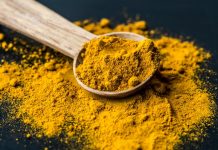
Did you know that there’s a special diet called the Mediterranean diet that could help older adults stay healthy and prevent frailty?
Researchers wanted to find out more about how this diet can help people stay strong as they age.
They looked at 19 different studies that explored the relationship between the Mediterranean diet and frailty or pre-frailty in older adults.
Frailty is when someone is weak and has difficulty doing everyday activities, while pre-frailty is when someone is at risk of becoming frail.
The researchers found that people who followed the Mediterranean diet more closely were less likely to become frail or pre-frail.
They found this out by looking at how many people in the studies became frail or pre-frail compared to how many people followed the Mediterranean diet.
In the studies that followed people over time, the researchers found that the highest adherence to the Mediterranean diet was linked to a 34% lower risk of frailty.
In the studies that looked at people at a single point in time, the researchers found that people who followed the Mediterranean diet were 56% less likely to be frail.
The researchers also found that each 2-point increase in the Mediterranean diet score was related to a lower risk of frailty. This means that even small changes in the diet could have a big impact on health.
Finally, the researchers found that people who followed the Mediterranean diet more closely were also less likely to become pre-frail.
This means that the Mediterranean diet could help people stay healthy and prevent frailty and pre-frailty as they age.
In conclusion, the Mediterranean diet is a healthy way of eating that could help older adults stay healthy and strong as they age.
By following this diet, people may be less likely to become frail or pre-frail, and they may be able to maintain their independence and quality of life for longer.
How to prevent frailty
Frailty is a condition that affects older adults and can cause weakness, exhaustion, and difficulty with everyday activities.
While it’s not always possible to completely prevent frailty, there are several steps that older adults can take to reduce their risk of becoming frail.
Stay active: Regular physical activity is one of the best ways to prevent frailty. Exercise helps to build and maintain muscle mass, which can help to prevent weakness and improve overall physical function.
Older adults should aim to do a mix of cardio and strength training exercises several times a week.
Eat a healthy diet: Eating a healthy diet that’s rich in nutrients can help to support muscle health and overall physical function.
In particular, older adults should aim to eat plenty of lean protein sources, such as fish, poultry, beans, and nuts.
Stay hydrated: Dehydration can cause weakness and fatigue, so it’s important for older adults to drink plenty of water throughout the day.
Get enough rest: Getting enough rest is important for muscle recovery and growth. Older adults should aim to get at least 7-8 hours of sleep each night.
Manage chronic conditions: Chronic conditions, such as diabetes and arthritis, can increase the risk of frailty. Managing these conditions through medication, diet, and exercise can help to prevent frailty.
Stay socially active: Social isolation can increase the risk of frailty, so it’s important for older adults to stay socially active and engaged with their communities.
By following these tips, older adults can help reduce their risk of becoming frail and maintain their independence and quality of life for longer.
The research was published in Ageing Research Review and was conducted by Donya Poursalehi et al.
If you care about pain, please read studies about vitamin K deficiency linked to hip fractures in old people, and these vitamins could help reduce bone fracture risk.
For more information about wellness, please see recent studies that Krill oil could improve muscle health in older people, and eating yogurt is linked to lower frailty in older people.
Copyright © 2023 Scientific Diet. All rights reserved.








